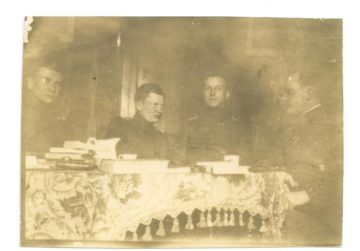Jessi Jezewska Stevens at The Paris Review:
 Jünger’s politics were complicated, if not incoherent. A decorated veteran of the First World War (he made his literary debut with a bellicose, best-selling diary from the trenches, Storm of Steel) who was praised by Hitler but who refused to join the Nazi Party; a self-taught conservative intellectual (Jünger never completed university) who won the admiration of Marxist writers like Bertolt Brecht; an incurable elitist sympathetic to communist centralization (he opposed liberalism above all)—the Weimar-era Jünger projected an aloof, aestheticizing, and ultimately paradoxical strain of fascism. Kracauer captured what feels most damning about Jünger’s political thinking during this time in a review of his controversial treatise The Worker (1932) for the Frankfurter Zeitung, in which he accused Jünger of having “metaphysicized” (metaphysiziert) politics: What about real, tangible action in our own historical moment? Metaphysics is an escape.
Jünger’s politics were complicated, if not incoherent. A decorated veteran of the First World War (he made his literary debut with a bellicose, best-selling diary from the trenches, Storm of Steel) who was praised by Hitler but who refused to join the Nazi Party; a self-taught conservative intellectual (Jünger never completed university) who won the admiration of Marxist writers like Bertolt Brecht; an incurable elitist sympathetic to communist centralization (he opposed liberalism above all)—the Weimar-era Jünger projected an aloof, aestheticizing, and ultimately paradoxical strain of fascism. Kracauer captured what feels most damning about Jünger’s political thinking during this time in a review of his controversial treatise The Worker (1932) for the Frankfurter Zeitung, in which he accused Jünger of having “metaphysicized” (metaphysiziert) politics: What about real, tangible action in our own historical moment? Metaphysics is an escape.
These ideological contradictions—or is it political ambivalence?—extended throughout the Second World War. The tendency to view the world through the metaphysical lens of cycles of power as opposed to “right and left” certainly seems to have granted Jünger, then an influential conservative voice, a great deal of moral latitude in distancing himself from the horrors emerging around him.
more here.
